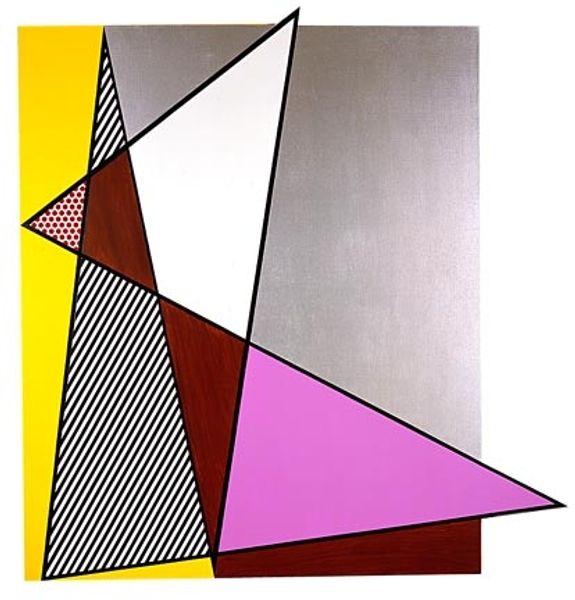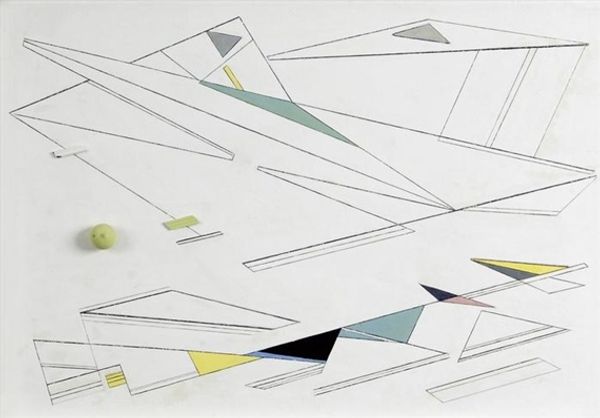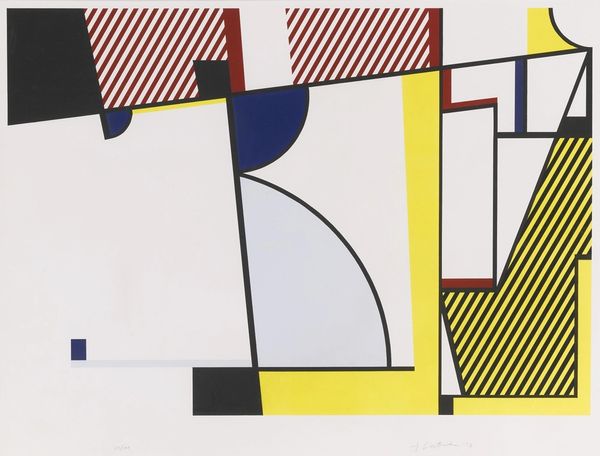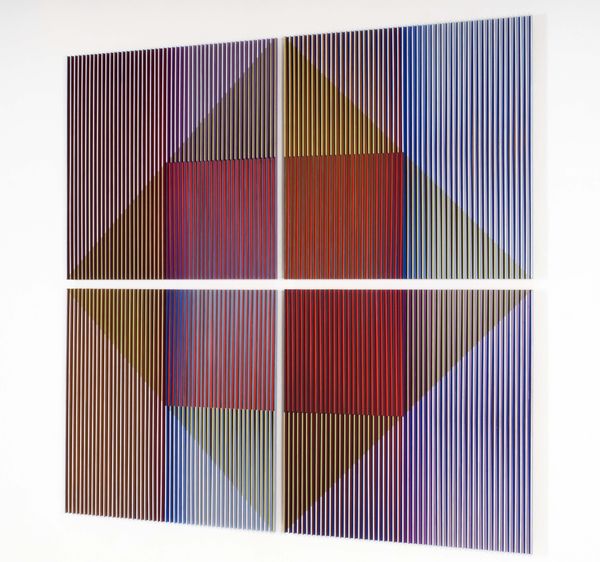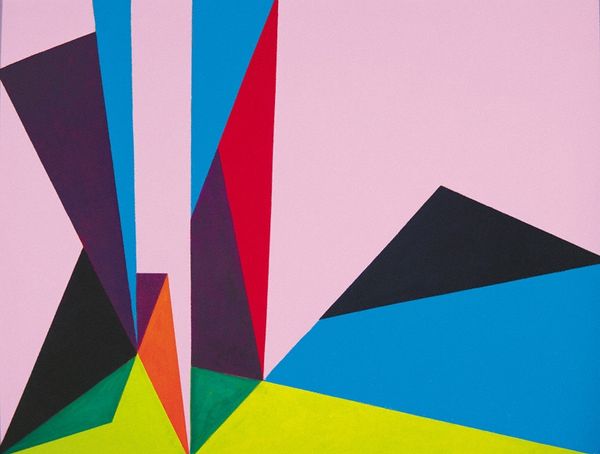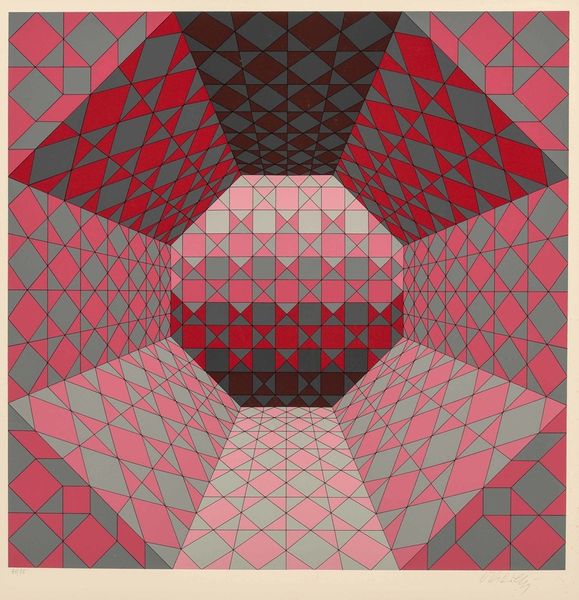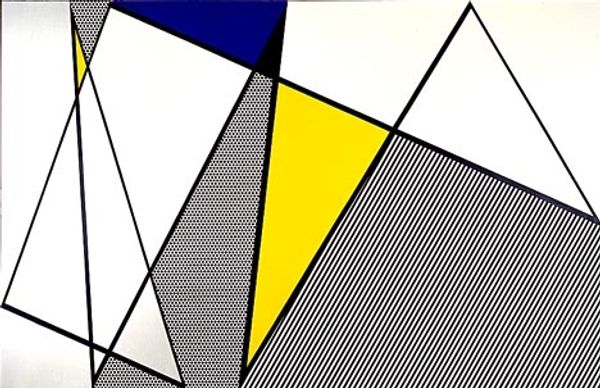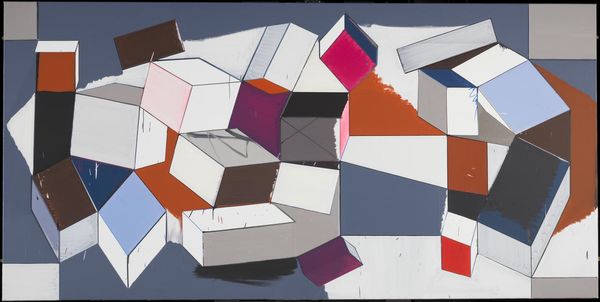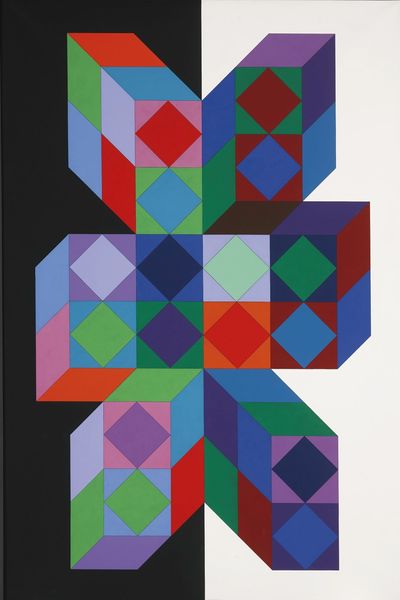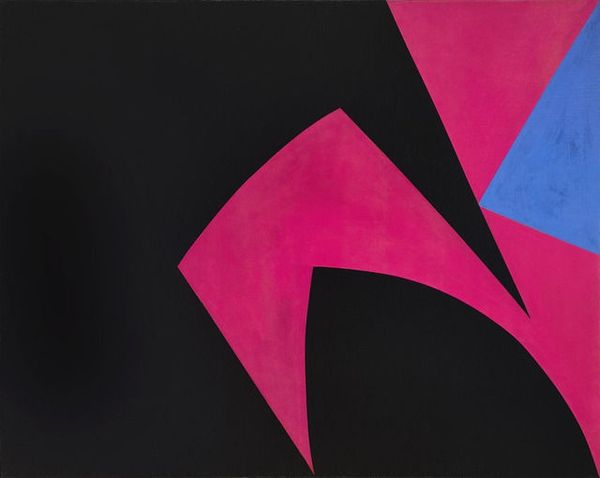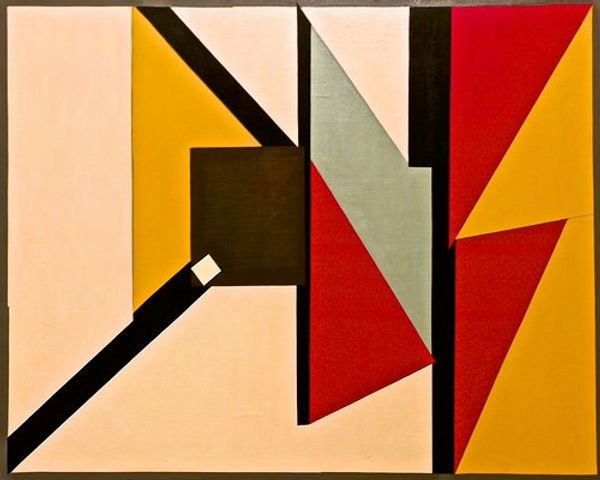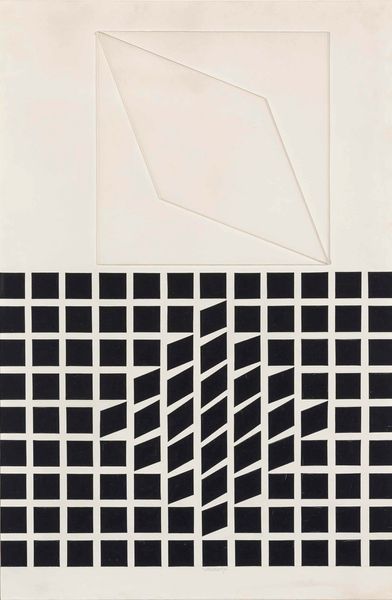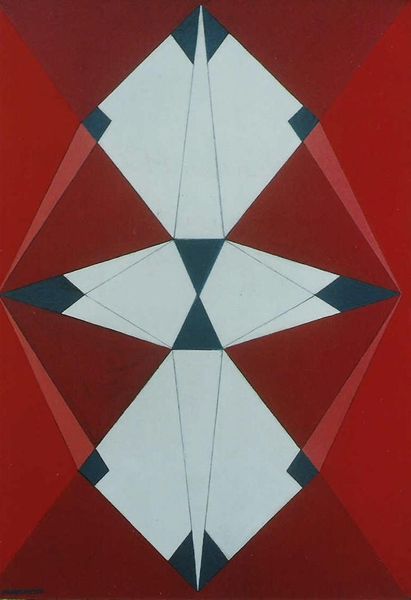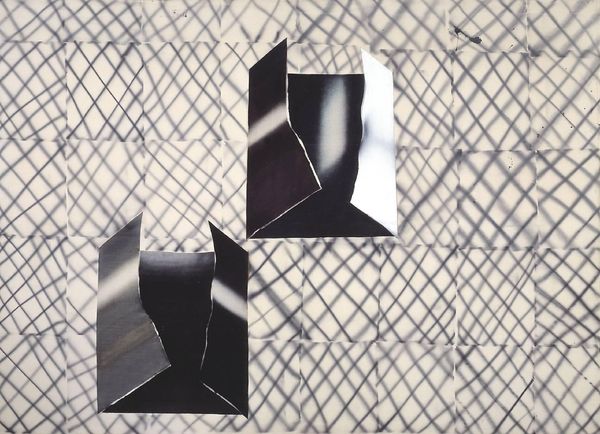
Copyright: Modern Artists: Artvee
Curator: Stepping up to this piece, I'm struck by its calculated, almost architectural feel. A real sense of playful deliberation amidst rigid geometric shapes. Editor: Yes, "Imperfect," a screenprint produced by Roy Lichtenstein in 1988, uses many of the signifiers of the Pop Art movement—commercial printing techniques rendered with self-aware irony. Lichtenstein’s aesthetic relies on our understanding of how images are produced and circulated. Curator: Absolutely, there's a wry humour at play here, isn't there? The name itself, "Imperfect," almost winks at the clinical precision so typical of his earlier Ben-Day dots. He’s kind of letting the mask slip, inviting us to see the human hand, or at least, a self-aware imperfection in the making of this flawless object. It’s also interesting, that these 'imperfections' almost act as an entry point for me as a viewer. I find it more approachable than some of his earlier, slicker pieces. Editor: I see your point. Lichtenstein's turn towards abstraction here reflects broader shifts in the art world toward the late 1980s. Many artists were pushing against the established norms, asking us to question the very nature of perfection and originality. Lichtenstein’s work can often be seen as commenting on these institutional trends in a subtle and highly individualistic manner. How he translates the handmade feel through very calculated processes speaks volumes. Curator: It almost becomes a commentary on the quest for perfection, doesn't it? How trying so hard to achieve something flawless often highlights our inherent flaws and limitations as humans? Perhaps that’s what’s drawing me in here. Editor: Yes, he’s poking fun at the commodification of abstract expressionism. Lichtenstein is suggesting that the heroic gestures of Pollock or Kline, if taken too seriously, risk becoming mere styles to be consumed. What a provocative move by an artist well known for his role in transforming perceptions of art. Curator: Precisely. It seems like it goes deeper than its visual elements. It’s playful subversion makes it surprisingly thoughtful. Editor: Definitely. Lichtenstein always managed to pack intellectual heft into what might, at first glance, appear as mere surface and style. "Imperfect" provides us ample to consider regarding the history, meaning, and evolving nature of art itself.
Comments
No comments
Be the first to comment and join the conversation on the ultimate creative platform.
